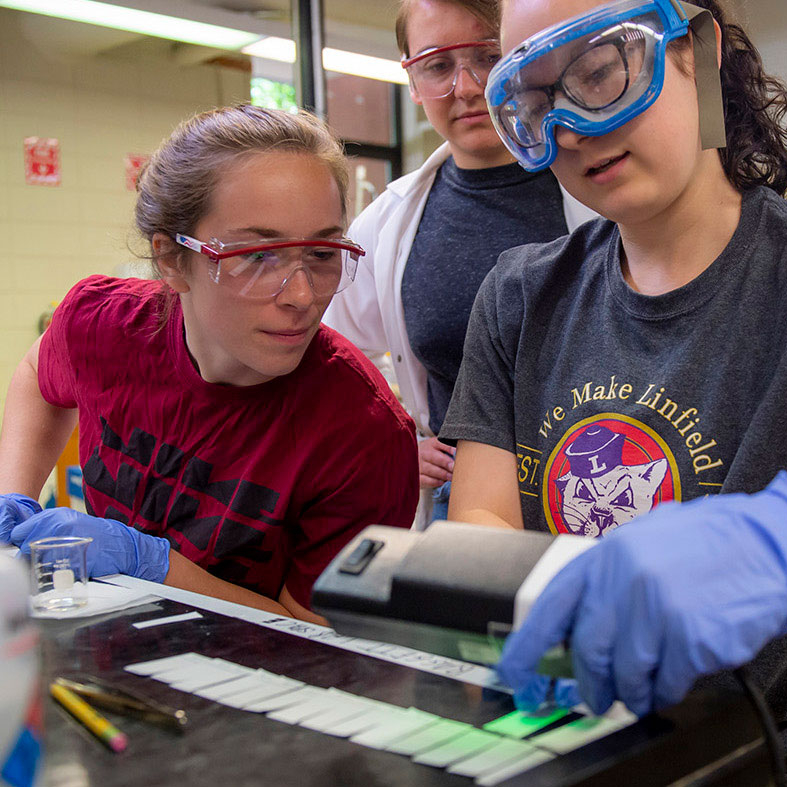
Collaborative Research
What will you discover?
Whether you’re interested in conducting forensic research or your own musical composition, you can make your mark at Linfield by turning untraditional ideas into unique insights that will impact our world. Collaborative research projects pair you with a faculty mentor to work on an original intellectual or creative work. Present your results to the Linfield community or at regional and national conferences. We’ll even help you pay for it.
Supporting collaborative research at Linfield
Thanks to a generous donation from Ronni Lacroute Linfield is able to support the Lacroute Initiative for Advancing the Liberal Arts at Linfield University.
The initiative fosters innovation and exploration of creative and collaborative partnerships across multiple areas of study. Funds help support research opportunities presented by Linfield faculty, students and staff.
Summer 2024
Collaborative Research projects
-
Biology -
Chemistry Refinement and Applications of Organic Synthesis to Address Challenges in Human Disease
Assistant Professor Andrew Baggett
Quantitative image analysis of yeast to determine chronological lifespan differences in yeast cell lines
Characterizing yeast chronological lifespan in wild type cells and cells lacking the protein Eug1p, and the effect of added copper on their growth and cellular function
Associate Professor Megan Bestwick
Noble metal-based nanoparticles for targeted drug delivery
Professor Brian Gilbert
Advanced research in technology to gain materials understanding for sustainability and engineering
Assistant Professor Sean Muir
-
Environmental Studies Assessing dewatering risk for freshwater mussels in Willamette Valley streams
Professor Kurt Ingeman
-
Nursing The Usage of a Novel Biofeedback Device for the Treatment of Urinary Incontinence in Adult Women
Assistant Professor Kristen Krum
-
Physics Computationally investigating collective phenomena in insect swarms
Associate Professor Joelle Murray
Exploring the electrical properties of two dimensional materials
Professor Michael Crosser
